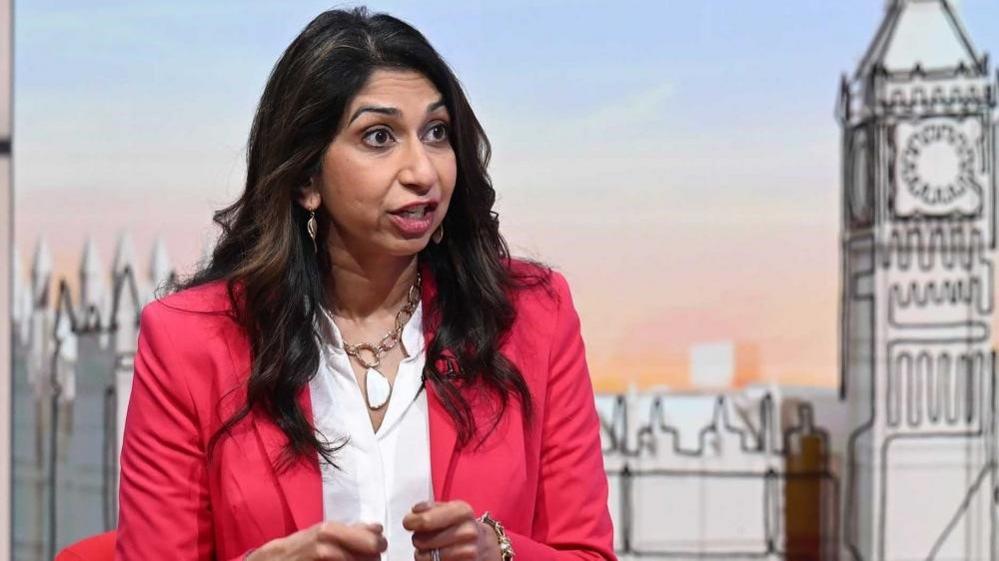'Work to do' after local election losses - Rishi Sunak
- Published
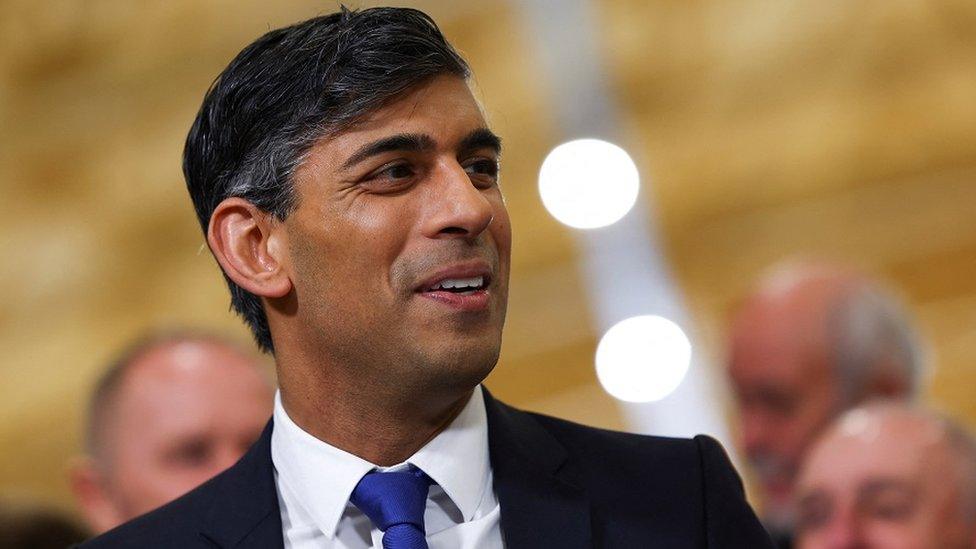
Rishi Sunak has dismissed calls to change course after poor local election results, arguing he can make "progress" with voters before a general election.
Speaking for the first time since the full scale of Tory losses was revealed, the prime minister called losing 470 councillors "bitterly disappointing".
Tory critics have called on Mr Sunak to shift the party to the right.
But Mr Sunak told The Times newspaper, external he was "determined that we will come together as a party".
The Conservatives are licking their wounds after a string of local election defeats. After the final votes were counted on Sunday, the Tories had lost control of 10 councils, more than 470 council seats and a totemic loss of West Midlands mayor Andy Street.
The party also lost 10 Police and Crime Commissioners to Labour, marking a potentially significant blow for the Conservatives if they aim to centre their next general election campaign on law and order.
Appearing to concede for the first time that his party could be on course to lose its majority, Mr Sunak said the local election results "suggest we are heading for a hung parliament with Labour as the largest party".
The prime minister told The Times: "Keir Starmer propped up in Downing Street by the SNP, Liberal Democrats and the Greens would be a disaster for Britain.
"The country does not need more political horse trading, but action."
He added: "There is work to do and more progress to be made and I am determined that we will come together as a party and show the British people we are delivering for them."
His comments reflect analysis by leading psephologist Prof Michael Thrasher for Sky News - which suggested Labour would win 294 seats at a general election.
The projection, which has been dismissed by some polling experts, used the local election results to project a nationwide estimate of vote share at a general election.
It assumes everyone would vote in the same way at a general election as they did in last week's local elections, when smaller parties and independent candidates tend to do better in local elections.
It also does not take account of what could happen in Scotland, instead using the results of the 2019 general election, while Labour are expected to do much better there this year.
Polling expert Prof Sir John Curtice said winning more seats in Scotland on its own probably would not be enough to secure a majority for Labour.
However, he told the BBC the impact of Reform UK was "diminished" in the local elections as they only stood in one in six wards.
Where they did stand, the Conservative vote fell significantly, suggesting the party could have a greater impact in a general election, where they have pledged to field candidates in every seat across England, Scotland and Wales.
Health Minister Maria Caulfield acknowledged there were "caveats" around the projection.
However, she claimed last week's results showed former Conservative voters were staying at home, rather than switching to Labour, and "they want a reason to vote for us".
Labour has denied it is planning alliances with other parties in order to form a government at the next general election, expected in the second half of this year.
Speaking on BBC's Sunday with Laura Kuenssberg, Labour's election co-ordination Pat McFadden said there was now a "sense of belief" that his party could win.
He hailed the "tremendous" election results for the party, especially winning the West Midlands mayoral race which he said was "beyond our expectations".
Watch: Braverman says she regrets backing Sunak for PM
Speaking on Sunday, former Home Secretary Suella Braverman said Mr Sunak's plan was "not working".
"There is no disguising the fact these have been terrible election results for the Conservatives," Mrs Braverman told the BBC.
Mr Sunak must "change course" towards more right-wing policies in order to win back Tory voters who are "on strike", she added.
Although a frequent critic of the prime minister, Mrs Braverman did not call for Mr Sunak's replacement, arguing it would be "impossible" to change leaders so close to a general election.
Mrs Braverman is among several conservative voices who have come out to advocate for a rightward policy shift in light of the bleak local election results.
Miriam Cates, co-chair of the New Conservatives group mostly made up of "red wall" MPs, from the party's 2019 intake, said her party must offer "patriotism and national security" to avoid falling into the "abyss".
Writing in the Telegraph, external, Ms Cates called on Mr Sunak to ignore policies that "serve an international elite" and instead focus on drastically reducing immigration and reforming planning laws to boost house-building.
Former lead Brexit negotiator Lord David Frost said he believed it was "too late" to save the Conservative Party from "electoral defeat at the next general election".
To save the party Mr Sunak must produce "more tax cuts, more spending cuts" and a "serious assault on the burden of net zero", Lord Frost argued.
However, Damian Green, chairman of the centrist One Nation Group of Conservative MPs, said "suggesting that what we need to do is to move to the right is irrational in the face of the electorate".
Speaking on BBC Radio 4's Westminster Hour, the former first secretary said: "I would just observe the seats that we have lost in the past few days - we lost to parties to the left of us."
Conservative Party chairman Richard Holden told the same programme that voters wanted the party to put forward a "clear vision for the country".
"I think it is self-indulgent for us to be talking to ourselves and talking about ourselves at the moment," he said.
Related topics
- Published4 May 2024
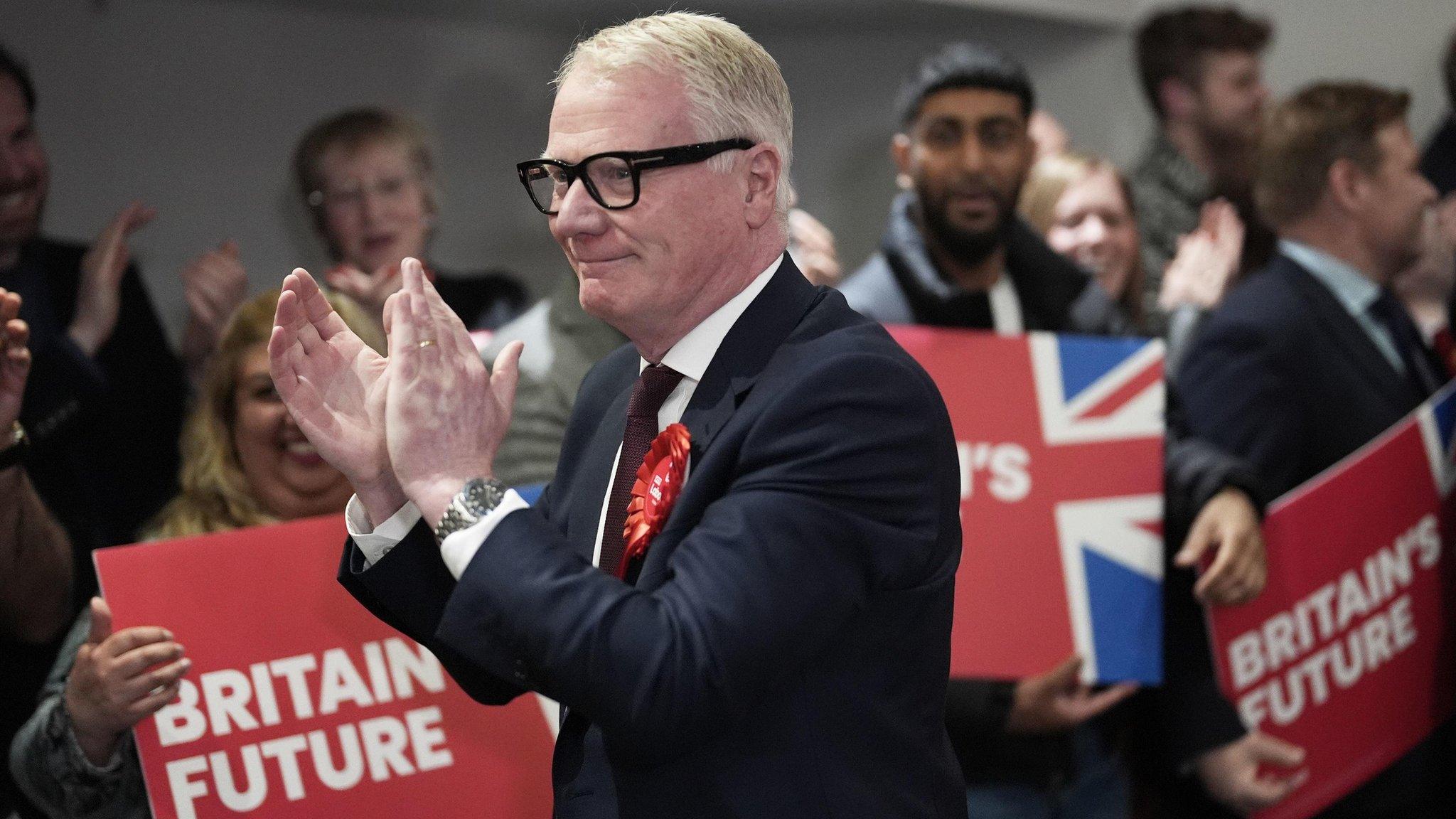
- Published6 May 2024
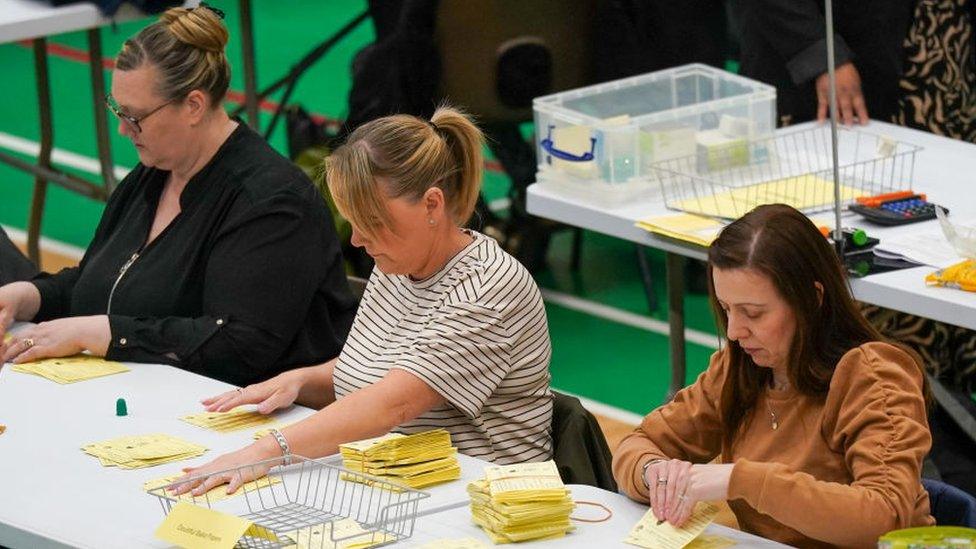
- Published5 May 2024
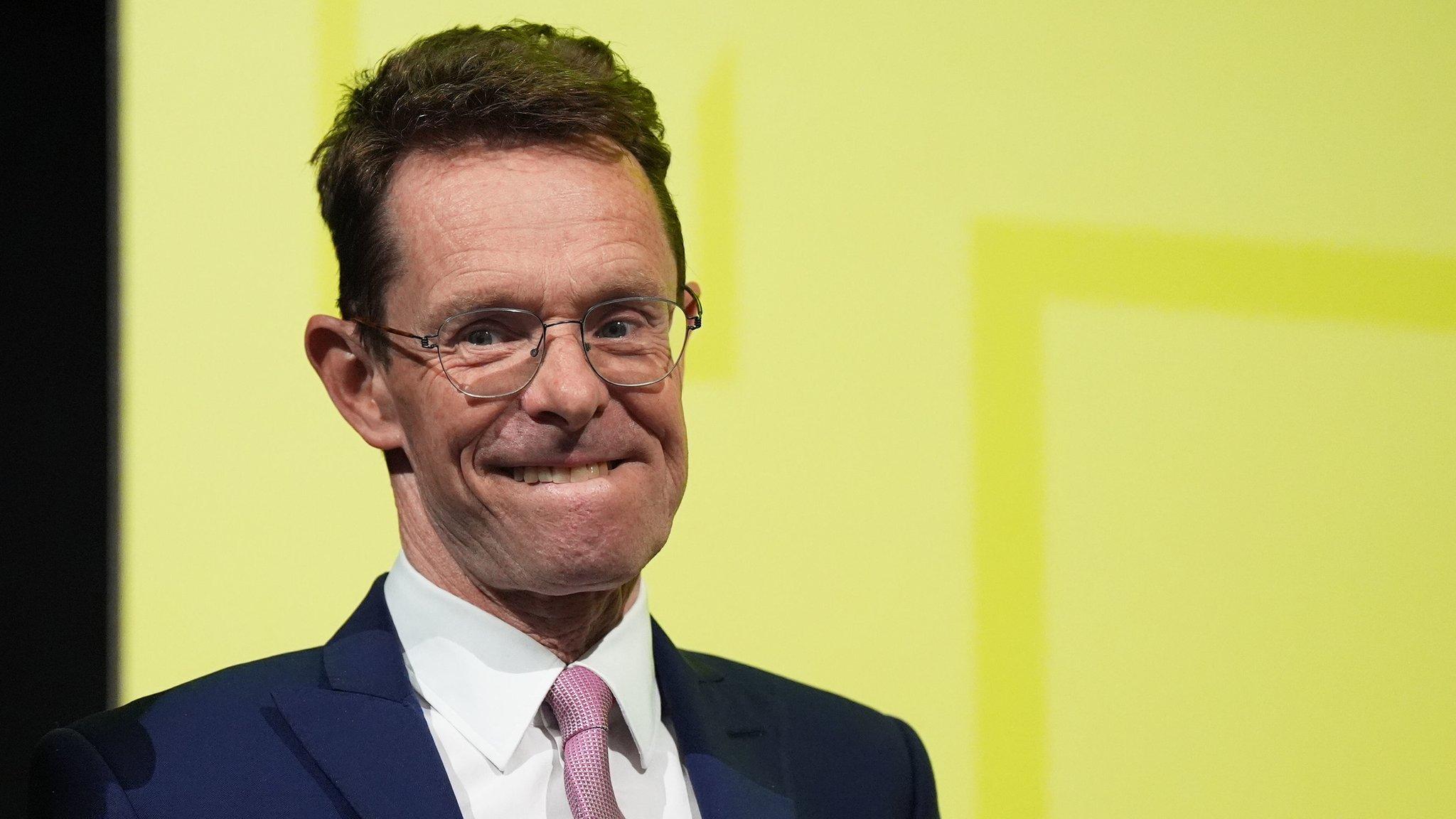
- Published4 May 2024
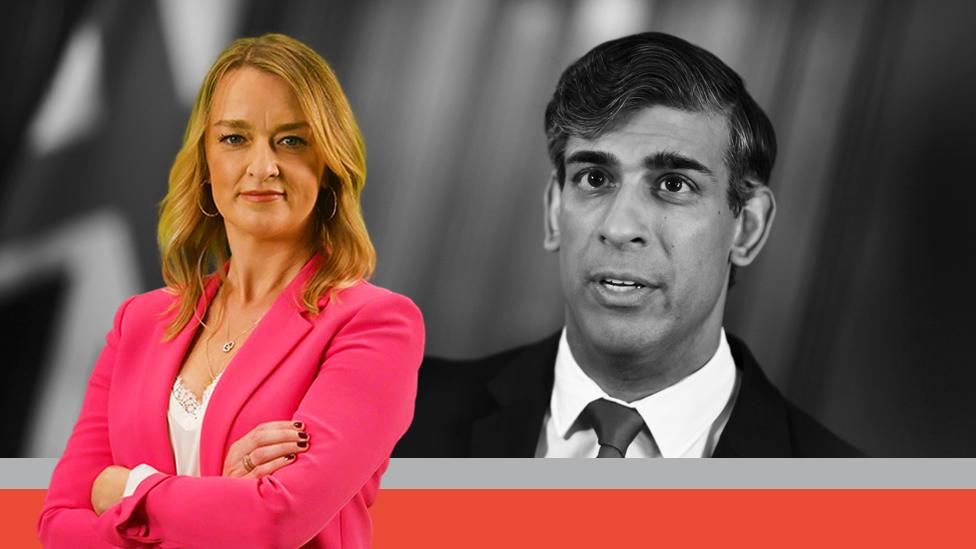
- Published5 May 2024
